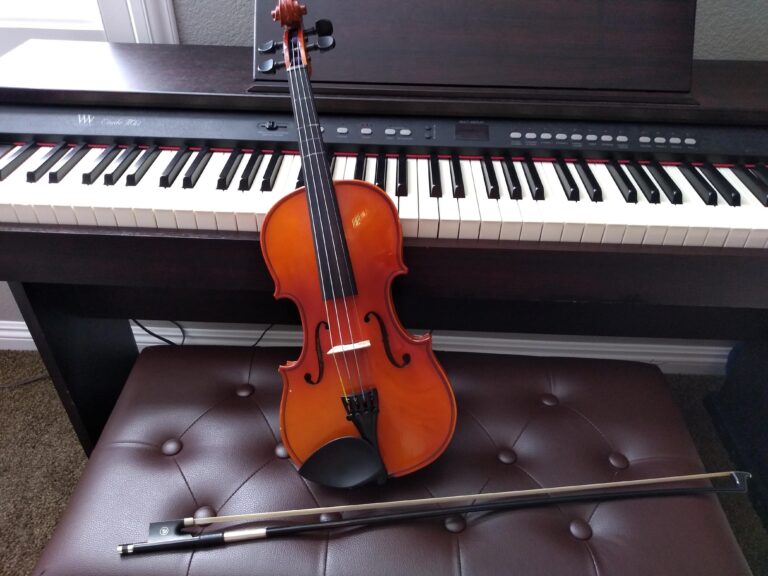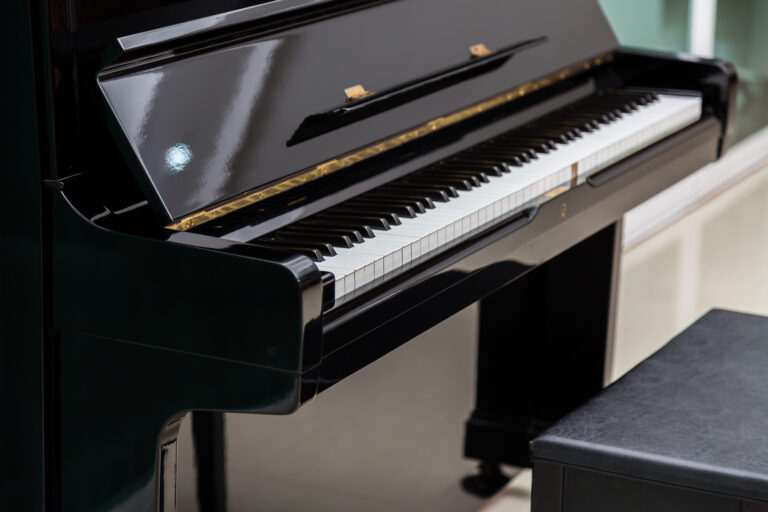Symphonic Resilience: Mastering the Battle Against Piano Frustrations
Do you find yourself feeling frustrated while practising the piano? You’re not alone. Learning to play an instrument can be a challenging and rewarding experience, but it’s not always easy. Many pianists, whether they’re beginners or advanced players, face frustrations that can hinder their progress and dampen their motivation.

One common frustration is the feeling of being stuck in a rut. You may find yourself playing the same pieces over and over again without making any significant progress. Or, you may feel like you’re not improving as quickly as you’d like to. This can be discouraging and make you question whether you’re cut out for playing the piano. However, it’s important to remember that progress takes time and patience. With consistent practice and a positive attitude, you’ll eventually break through that plateau and see improvement.
Common Practice Challenges

Hand Coordination
One of the most common challenges that piano learners face is hand coordination. It can be difficult to get your left and right hand to play together smoothly, especially when playing complex pieces. One way to improve your hand coordination is to practice playing both hands separately, then gradually increase the tempo until you can play both hands together.
Rhythm and Timing
Another challenge that many piano learners face is rhythm and timing. It can be difficult to keep a steady beat and maintain the correct tempo throughout a piece. To improve your rhythm and timing, try using a metronome while practising. Start at a slower tempo and gradually increase the speed as you become more comfortable with the piece.
Sight-Reading Music
Sight-reading music is another common challenge for piano learners. It can be difficult to read and play music at the same time, especially if you’re not familiar with the piece. To improve your sight-reading skills, practice reading music regularly. Start with simple pieces and gradually work your way up to more complex pieces.
These challenges are common among piano learners, but with practice and dedication, they can be overcome. By focusing on hand coordination, rhythm and timing, and sight-reading music, you can improve your piano skills and become a better player.
Overcoming Technical Difficulties

Finger Strength and Dexterity
One of the most common technical difficulties that pianists face is a lack of finger strength and dexterity. This can make it difficult to play fast or complex passages and can lead to frustration and discouragement. However, there are several exercises that you can do to improve your finger strength and dexterity.
One effective exercise is to practice scales and arpeggios, starting slowly and gradually increasing your speed. You can also try playing Hanon exercises, which are specifically designed to improve finger strength and dexterity. Another helpful exercise is to practice playing with a metronome, gradually increasing the tempo until you can play the passage at the desired speed.
Pedal Technique
Another common technical difficulty is mastering the pedal technique. The pedal can be a powerful tool for creating a rich and expressive sound, but it can also be difficult to use effectively. One common mistake is to overuse the pedal, which can create a muddy or indistinct sound.
To improve your pedal technique, start by practising simple exercises that focus on using the pedal in a controlled and precise way. For example, you can practice playing a single note and gradually adding more pedals until you achieve the desired sound. You can also practice playing with different pedal types, such as the sustain pedal or the una corda pedal.
By focusing on improving your finger strength and dexterity, as well as your pedal technique, you can overcome some of the most common technical difficulties that pianists face. With practice and patience, you can become a more confident and skilled pianist.
Psychological Aspects of Learning
Learning to play the piano can be a rewarding experience, but it can also be frustrating and challenging. In addition to the physical demands of playing, there are also psychological aspects to consider. Here are some tips for dealing with the psychological aspects of learning to play the piano.
Dealing with Performance Anxiety
One of the most common psychological challenges for piano players is performance anxiety. This can manifest as nervousness, shaking, sweating, and even panic attacks. To overcome performance anxiety, it’s important to practice performing in front of others. Start with small audiences, such as family and friends, and gradually work your way up to larger audiences.
It’s also helpful to practice relaxation techniques like deep breathing and visualization. These techniques can help reduce anxiety and promote a sense of calmness and focus.
Maintaining Motivation
Learning the piano can be a long and sometimes frustrating process. It’s important to stay motivated to keep practising and improving. One way to maintain motivation is to set goals for yourself. These goals should be specific, measurable, and achievable.
It’s also important to practice regularly, even if it’s just for a few minutes each day. Consistency is key when it comes to learning any new skill. Finally, don’t be too hard on yourself. Learning the piano takes time and patience, and it’s okay to make mistakes along the way.
Advancing Your Skills
As you progress in your piano journey, you may find yourself facing new challenges and frustrations. However, with dedication and practice, you can overcome these obstacles and continue to advance your skills.
Mastering Complex Compositions
One way to challenge yourself and improve your piano skills is by mastering complex compositions. These pieces may have intricate melodies, complicated rhythms, or difficult chord progressions. While it may seem daunting at first, breaking down the piece into smaller sections and practising them slowly can help you master the composition over time.
Additionally, utilizing resources such as sheet music, instructional videos, and working with a piano teacher can also aid in your progress. By taking the time to practice and learn these complex compositions, you will not only improve your technical skills but also gain a sense of accomplishment and satisfaction.
Developing Your Style
Another way to advance your piano skills is by developing your unique style. This can involve experimenting with different genres, improvising, and adding flair to your playing. By exploring different styles and techniques, you can discover what resonates with you and develop your sound.
To develop your style, try incorporating elements from different genres and experimenting with different chord progressions and rhythms. Additionally, practising improvisation can help you develop your creativity and ability to think on your feet while playing.
Overall, advancing your piano skills takes time, dedication, and hard work. By mastering complex compositions and developing your style, you can continue to grow as a pianist and achieve your musical goals.
Frequently Asked Questions
How can I overcome the feeling of being stuck at my current piano skill level?
Feeling stuck at your current piano skill level is a common frustration among pianists. One effective strategy to overcome this feeling is to set achievable goals that challenge you to improve gradually. Break down larger goals into smaller, more manageable ones, and celebrate each milestone you reach. Additionally, consider seeking feedback from a piano teacher or mentor, who can provide guidance and help you identify areas for improvement.
Practicing piano for extended periods can be mentally and physically exhausting. To combat this, it’s important to take breaks regularly and engage in other activities to give your mind and body a rest. Try practising in shorter sessions throughout the day, and incorporate stretching or light exercise into your routine. Additionally, make sure to get enough sleep and maintain a healthy diet to support your energy levels.
What are common challenges for beginners learning piano and how can they be addressed?
Beginners learning piano often face challenges such as hand coordination, reading sheet music, and developing proper technique. To address these challenges, it’s important to start with a solid foundation and work on building fundamental skills. Consider taking lessons from a qualified piano teacher who can provide guidance and support tailored to your needs. Additionally, practising regularly and breaking down difficult pieces into smaller sections can help make learning piano more manageable.
How can I maintain motivation when progress on the piano seems slow?
Maintaining motivation when progress on the piano seems slow can be a challenge. One effective strategy is to focus on the process of learning rather than the end result. Celebrate small victories along the way and recognize that progress takes time. Additionally, try setting goals that are challenging but achievable, and seek inspiration from other pianists or musicians who have achieved success through hard work and perseverance.
What techniques can help in managing performance anxiety for pianists?
Performance anxiety is a common issue among pianists, but there are techniques that can help manage it. One effective strategy is to practice performing in front of others, gradually increasing the number of people and the level of difficulty of the piece being performed. Additionally, deep breathing exercises and visualization techniques can help calm nerves before a performance. It’s also important to remember that mistakes are a natural part of the learning process, and to focus on enjoying the experience of playing rather than striving for perfection.
Why do some pianists experience frustration during practice and how can it be mitigated?
Pianists may experience frustration during practice for a variety of reasons, such as feeling stuck on a difficult passage or struggling to maintain focus. To mitigate frustration, try breaking down the piece into smaller sections and practicing each section individually. Additionally, consider taking a break and engaging in a different activity to clear your mind before returning to practice. Finally, remember to be patient with yourself and recognize that progress takes time and effort.






